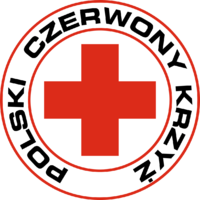
Summary
Polish Red Cross (Polish: Polski Czerwony Krzyż, abbr. PCK) is the Polish member of the International Red Cross and Red Crescent Movement. Its 19th-century roots may be found in the Russian and Austrian Partitions of the Polish–Lithuanian Commonwealth. On regaining its independence in 1918 Poland's charitable institutions were able to reconvene and establish the Red Cross on its territory under the presidency of Paweł Sapieha, formerly President of the Red Cross in Galicia. The new society was recognized by the International Red Cross on 24 July 1919. During the Polish People's Republic (1947–1989) the Polish Red Cross lost its autonomy and all its assets to the state. Across its hundred year history it continues its humanitarian work at home and abroad. Its focus is on education, exhumations and missing persons. It continues to carry aid to refugees.[1]
 | |
| Founded | 18 January 1919 |
|---|---|
| Type | Non-governmental organization |
| Focus | Humanitarian |
| Location | |
Area served | Worldwide |
| Method | Aid |
Members | 600,000 |
President | Stanisław Kracik |
| Website | pck |
History edit
On 18 January 1919 the Polish Samaritan Society organized a meeting of all Polish charities that followed the Red Cross principles. With the support of Helena Paderewska, then head of what was called the Polish White Cross society, the participants formed the Polish Red Cross Society. A temporary committee of 30 was elected to develop draft statutes and to proceed with preparations of the new PCK.
Polish Soviet War edit
In 1922 after the Polish–Soviet War the Polish Red Cross participated in an exchange of Polish and Russian prisoners. Ekaterina Peshkova the chairwoman of organisation, Assistance to Political Prisoners (Pompolit, Помощь политическим заключенным, Помполит),[2] was given an award by the Polish Red Cross for her participation in the exchange of POWs.[3][4] Before World War II the PCK operated ambulances on behalf of the Polish Army in order to aid the Army's budget.
WWII edit
In 1942, the eminent Polish cryptologists Marian Rejewski and Henryk Zygalski escaped from occupied France to Spain. Upon arrival they were imprisoned by the Spanish. The Polish Red Cross made arrangements for food parcels to be delivered to the prisoners. Red Cross personnel sent a list in Polish of "Polish Prisoners" who were to receive food parcels. The Red Cross was later able to secure their release. During the Italian campaign in 1944, the director for the Red Cross in Anders' Army was Count Stefan Tyszkiewicz.[5]
References edit
- ^ "History of the Polish Red Cross" (in Polish).
- ^ "ПРАВОЗАСТУПНИКИ". 2002.novayagazeta.ru. Archived from the original on 2012-07-16. Retrieved 2019-06-11.
- ^ (in Russian) Yaroslav Leontiev Dear Ekaterina Pavlovna Archived 2007-03-11 at the Wayback Machine, Russian Germany, N24 -2005
- ^ (in Russian) Fighters for the Human Rights Archived 2012-07-16 at the Wayback Machine, Novaya Gazeta, N81, 2002
- ^ Piotrowski, Jacek, Ed. Dzienniki czynności Prezydenta RP Władysława Raczkiewicza : 1939 - 1947 - Wrocław: Wydawn. Uniwersytetu Wrocławskiego, 2004, (Acta Universitatis Wratislaviensis; 2687), ISBN 83-229-2566-2, Signatur der Staatsbibliothek zu Berlin: 3 A 128733-2 1a: 3 A 128733-2, p. 527 - the Journals of President Raczkiewicz, 1939-1947.
External links edit
- (in Polish) Homepage


